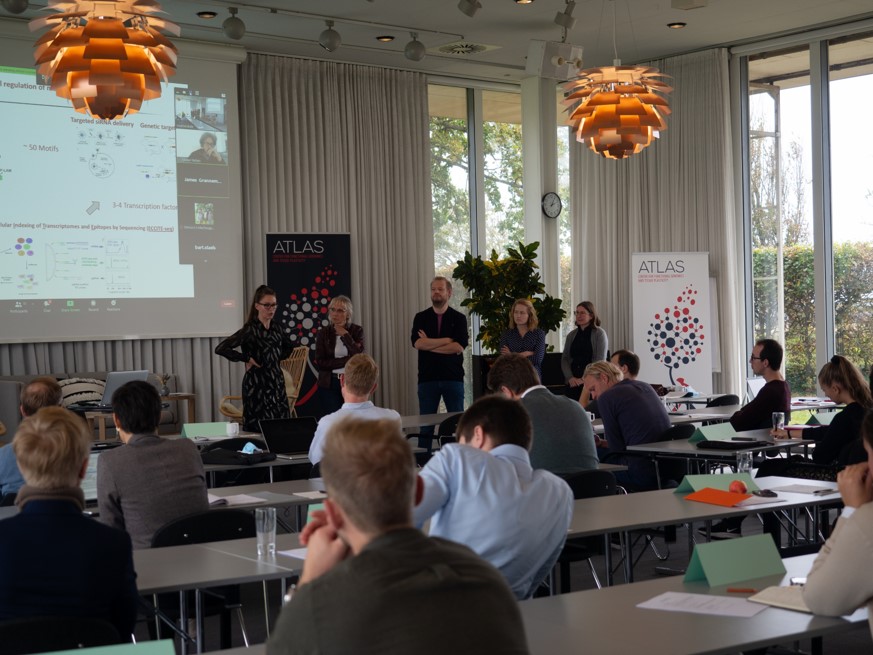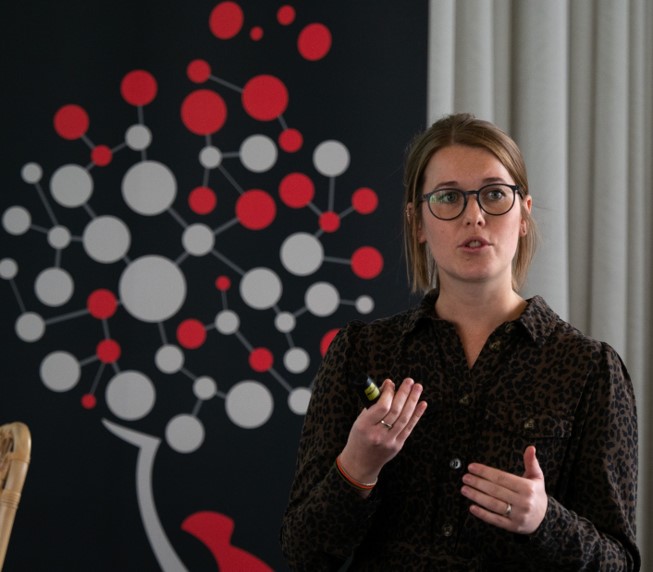In late October, ATLAS – Center for Functional Genomics and Tissue Plasticity finally held our postponed annual meeting. Sinatur Hotel Gl. Avernæs provided the framework for two fantastic days filled with science, project discussions, and inspirational talks.
With the on-going pandemic and the associated traveling restrictions, the format of this year’s ATLAS Annual Meeting of was quite different from previous annual meetings, and at the same time quite the same. Different in the sense that the majority of our scientific advisory board participated online, and the program had to be adjusted to account for different time zones. And different, as we would normally have a team building-activity and closer social contact.
However, many aspects were the same in the sense that we once again proved to ourselves and to our Scientific advisory board that we are on the right track and have achieved great results, with many important publications in the pipeline. The collaborations across the center are continuing to grow, inspire and lead to new opportunities.

The meeting was opened with an inspiring talk entitled “Do we need at new theory about the causes of obesity and its co-morbidities?” by Thorkild I.A. Sørensen, Professor of Genetic and Metabolic Epidemiology, University of Copenhagen. The importance of our work was subsequently framed during the on-site interview with two clinical participants, who had undergone bariatric surgery. The interviews and the Q&A gave us a unique opportunity to learn about the motivation and worries of the patients regarding bariatric surgery, and to learn how they see their contribution to our research.
Part of the annual meeting was held joint with Center for Adipocyte Signaling (ADIPOSIGN) with talks by the scientific advisory board of both centers as well as discussion sessions. In the future we expect to see a great degree of cross-pollination between the two centers.
The timing of the annual meeting was perfect. “We consider ourselves very fortunate that we were able to meet before the corona-restrictions were tightened even further, as this would have prevented us from having such an important event at such a fantastic place”, says Center Director, Prof. Susanne Mandrup, and continues: “However, next year we really hope that our Scientific Advisory Board members are able to travel to Denmark and join the meeting in person”.